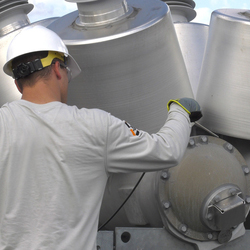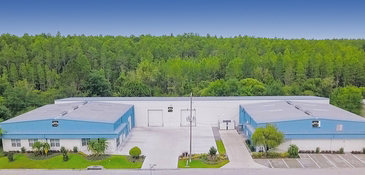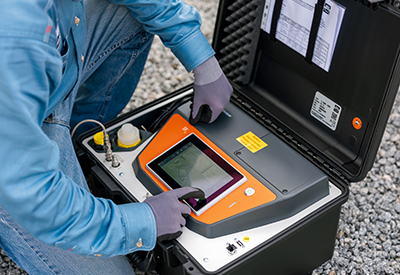Sulfur hexafluoride (SF₆) has been the gold standard for insulating and arc-quenching in high-voltage equipment for more than half a century. Its unmatched dielectric strength, stability, and safety record made it the default choice for breakers, switchgear, and GIS systems—and even today, most utility infrastructures still rely on it.
But SF₆ comes with a challenge: its environmental footprint.
With a global warming potential 23,500× higher than CO₂ and an atmospheric lifetime of 3,000+ years, even small leaks have long-lasting consequences. Utilities must strike a careful balance between grid reliability and emissions reduction—and the most important tool in achieving that balance is accurate, consistent SF₆ gas analysis.
The Role of Gas Analysis in Grid Reliability
Every refill, recovery, or reuse of SF₆ carries decision points:
Is this gas safe to reuse? Should it be reconditioned? Is disposal required?
Without analysis, those decisions are guesswork.
With analysis, they become confident, compliant, and cost-effective.
SF₆ gas analysis allows utilities to:
Verify Purity
Gas purity below ~97% significantly reduces dielectric strength, increasing the risk of failure.Identify Moisture Issues
Moisture is a silent hazard—leading to corrosion, reduced insulation, and formation of highly corrosive HF during arcing.Detect Decomposition By-Products
Compounds like SO₂, HF, SOF₂, and SO₂F₂ act as “stress fingerprints,” revealing arcing, partial discharge, and developing equipment problems.
Together, these measurements give a complete snapshot of gas health and help operators make informed decisions that protect assets, personnel, and the environment.
Why This Matters for Utilities
Consistent gas analysis supports:
Reduced emissions and improved sustainability
By maximizing reuse and minimizing virgin SF₆ purchasing.Regulatory compliance
From the EPA GHGRP in the U.S. to strict EU F-Gas regulations.Lower operational costs
Through smarter maintenance decisions and fewer unplanned outages.
In fact, utilities that implement structured SF₆ decision frameworks often see double-digit reductions in both emissions and procurement costs.
Your Next Step: Get the Beginner’s Field Guide
Whether you're an engineer, technician, or compliance officer, understanding SF₆ gas analysis is essential for maintaining system reliability and meeting environmental responsibilities.
his guide covers:
Key measurements and why they matter
How to interpret common analyzer outputs
A decision-making framework for reuse, reconditioning, or recycling
Compliance requirements across global markets
Start building safer, cleaner, and more compliant SF₆ workflows today.
Questions? We are here to help.






